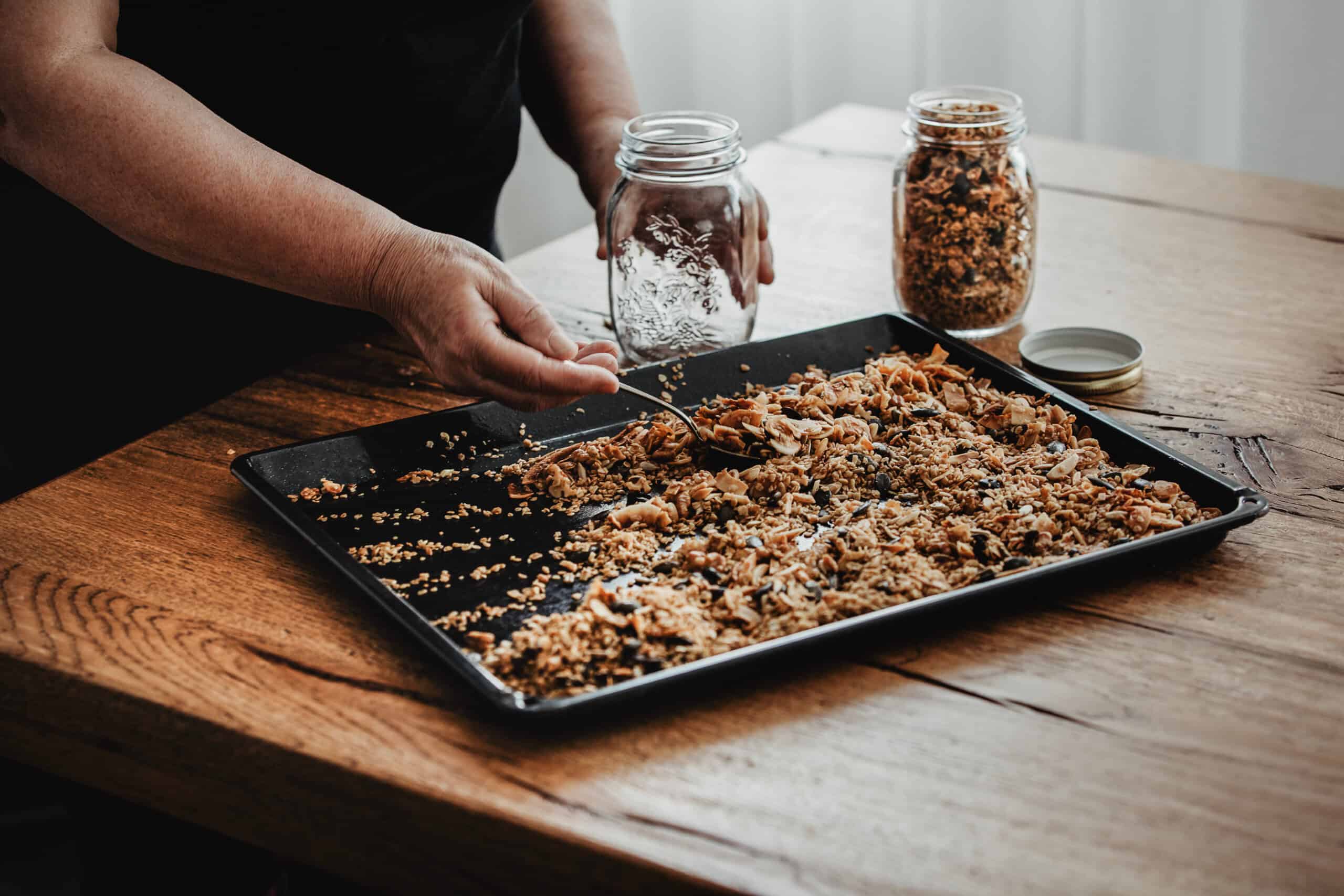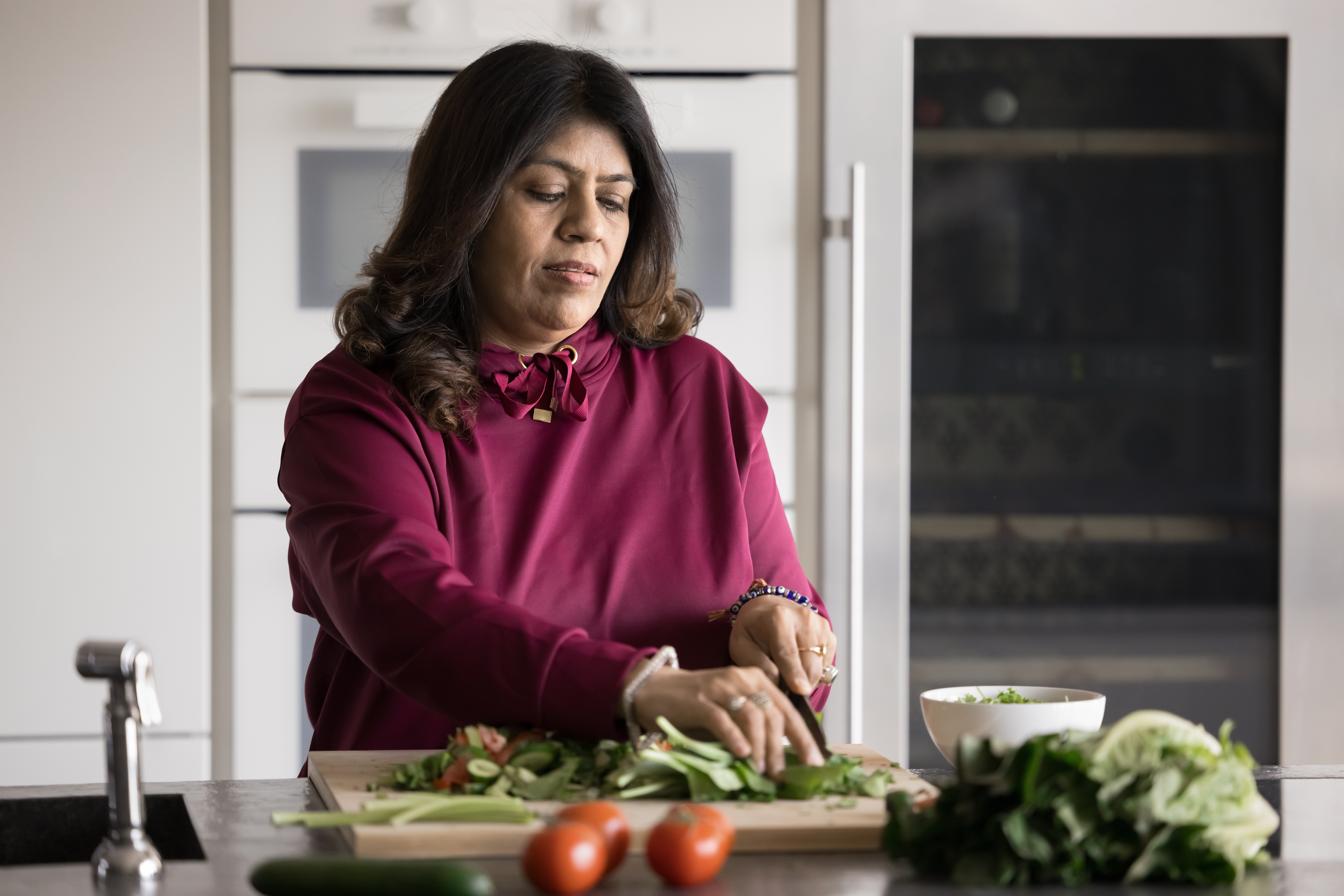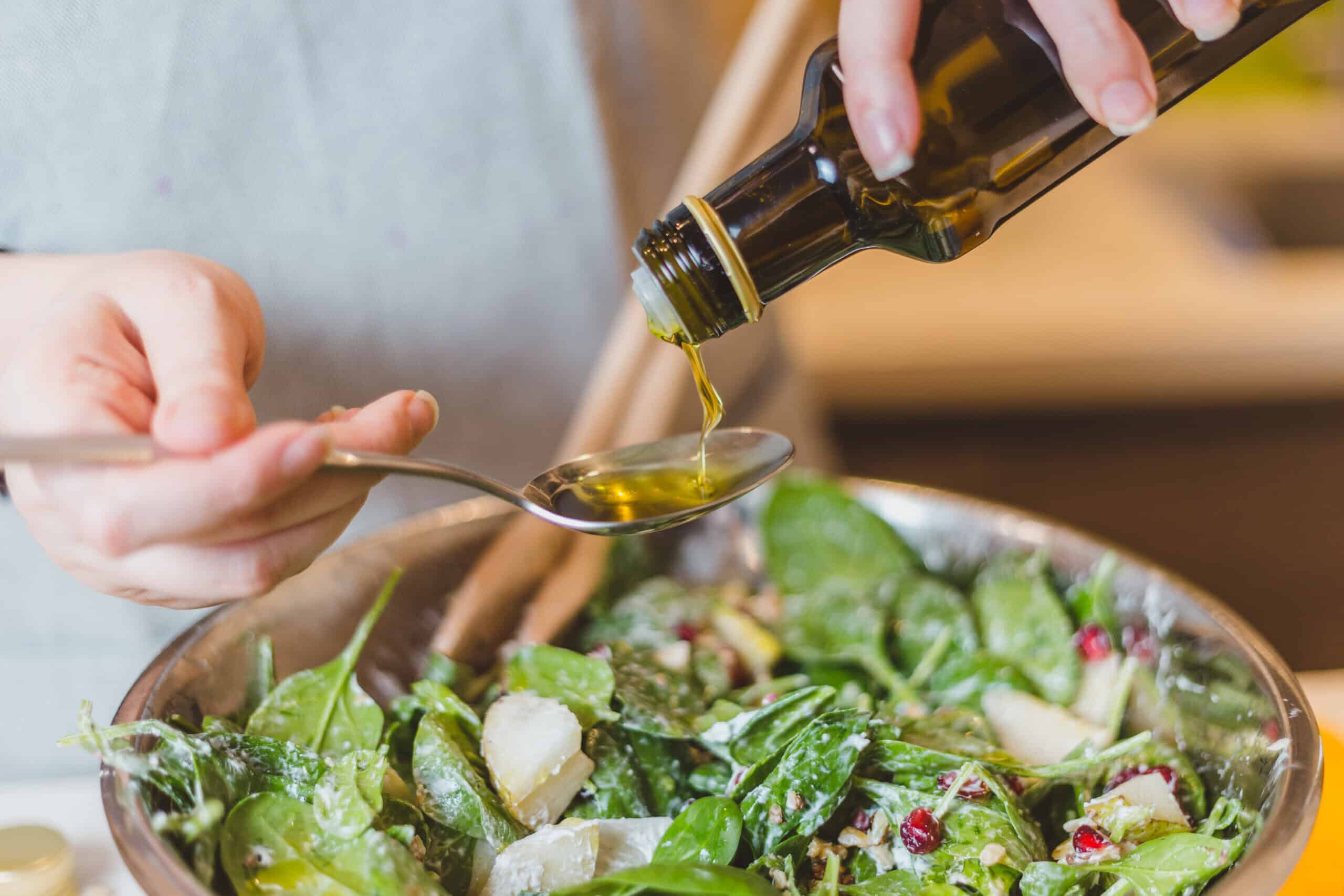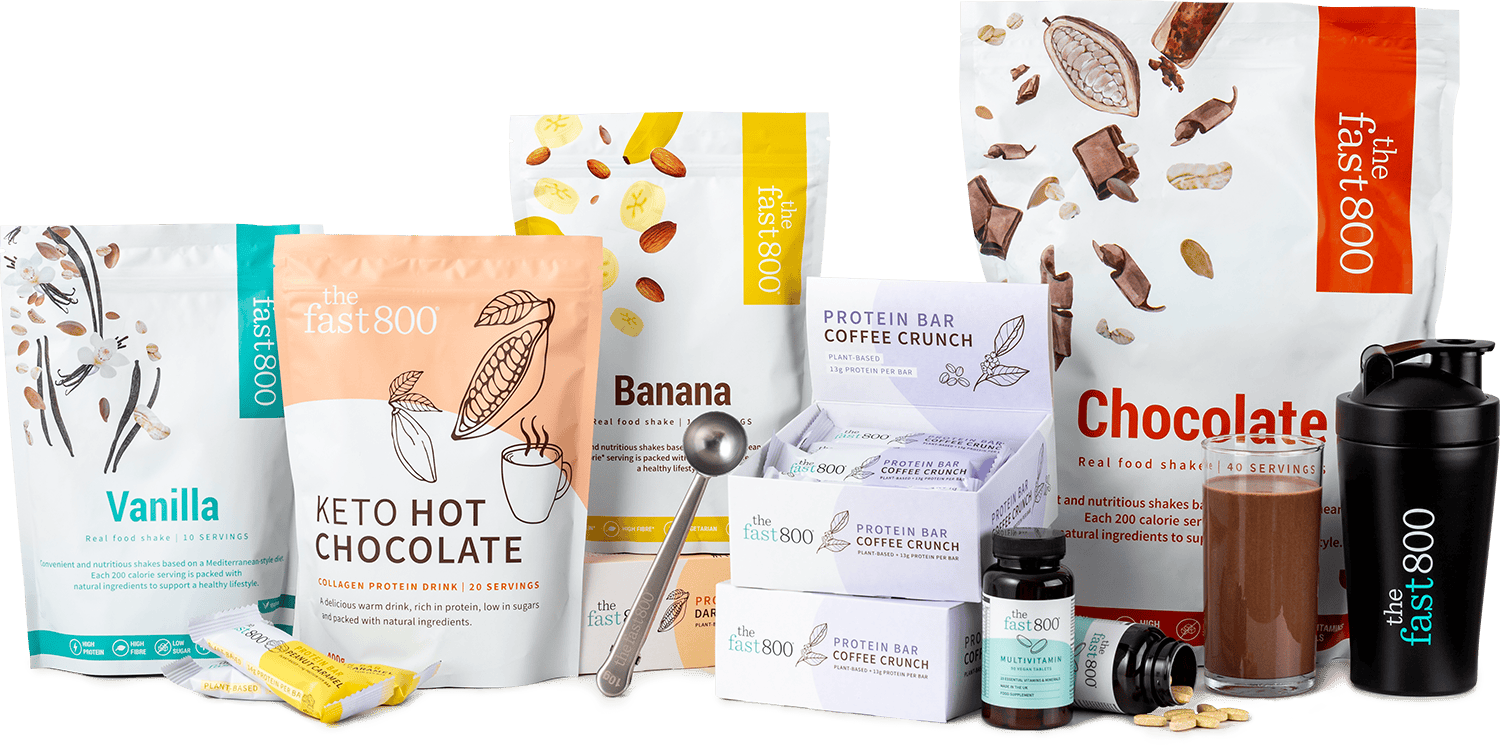How much protein do you actually need?
At The Fast 800, we’re keen to share the power of protein when it comes to weight loss, muscle mass maintenance and overall good health. So much so that we have worked with nutritionists to develop a range of delicious high protein products to help you along your way to reaching daily nutrition goals. But, how much protein do you actually need each day, and what should you eat to reach that target?
How much protein do you actually need?
The Fast 800 diet was created using the principles of a Mediterranean-style diet, which is known to be one of the healthiest eating patterns on the planet. It focuses on a variety of protein sources, plenty of healthy fats, and fibre-rich vegetables and whole grains.
So, how much protein do you actually need? We recommend consuming more than 60g of protein every day to reap its significant health benefits, even on fasting days. This can help:
- Maintain good bone health1
- Assist with weight loss
- Maintain muscle mass2
- Lower blood pressure3
- Reduce risk of cardiovascular disease4
- Speed up injury recovery5
Convenient tools to support your goals
Discover The Fast 800 range of protein products to support weight loss and fasting, and start your nutrition journey with your best foot forward!
SHOP NOW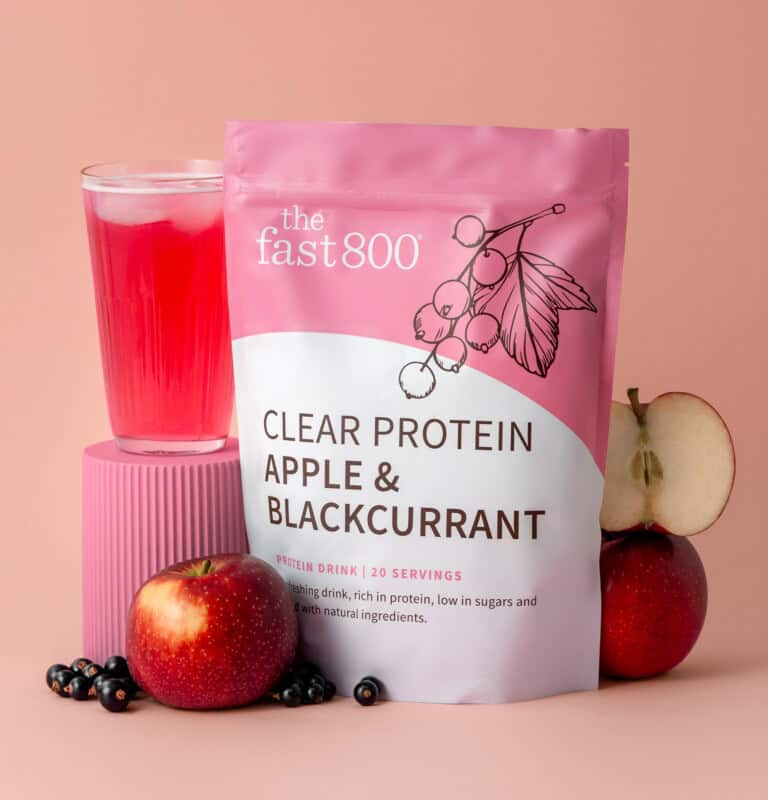
Healthy protein sources
If you’re curious about how much protein you actually need, you should know the best foods to eat to help you reach that daily 60g goal.
Protein is made up of chains of molecules called amino acids, twenty of which are essential for human bodily functions. Nine of these amino acids cannot be made by the body itself and must be consumed in the food we eat.
Foods that contain all nine of these amino acids are called ‘complete proteins’ while foods that don’t are considered ‘incomplete’, though both forms are important to prioritise.
Healthy complete proteins include:
- Meat
- Fish
- Eggs
- Buckwheat
- Quinoa
- Chia seeds
Healthy incomplete proteins include:
- Nuts and seeds
- Legumes
- Vegetables
- Grains
High protein recipes
If we’ve now answered your question, ‘how much protein do you actually need?’, then here are a few high protein recipes to get you started:
- Protein Banana Pancakes: Our pancake recipe features The Fast 800 Banana Shake to bring you over half your daily recommended protein in an indulgent weekend breakfast.
- Halloumi Fritters: These vegetarian fritters make for a satisfying lunch and provide 25g of meat-free protein per serving.
- High Protein Pasta: This pasta recipe is a quick and easy way of getting in 27g of protein in just 585 calories, using mostly cupboard staples.
- Beef Bourguignon: Bourguignon is a warming dish sure to satisfy you and the whole family. It’s under 500 calories per portion and contains a whopping 36g of protein, making it ideal for fasting days.
- High Protein Pudding: Our protein pudding makes for a tasty fasting day breakfast, or a delicious dessert on non-fasting days. It features The Fast 800 Protein Powder to provide 26.1g of protein per serve.
A convenient way to boost your intake
Getting in how much protein you actually need can be tricky on busy days, and even more so on fasting days. While we recommend real food first, our range of high protein products are all designed to be convenient ways of boosting your protein intake.
Our Protein Powder comes in delicious flavours like chocolate and vanilla and provides over 22g of protein per serving. Alternatively, our juicy Clear Protein is available in the UK and Australia, as is our Keto Hot Chocolate! Our tasty vegan protein bars (available in the UK only) come in four indulgent flavours and are also ideal for keeping to hand for when you’re on the go.
Try out our range of high protein products here to help you get in how much protein you actually need. You may be surprised at the difference it makes to your weight, energy levels and overall health once you’re hitting those nutrition goals!
Bonjour JP. Dietary protein: an essential nutrient for bone health. J Am Coll Nutr. 2005 Dec;24(6 Suppl):526S-36S. doi: 10.1080/07315724.2005.10719501. PMID: 16373952.
Cava E, Yeat NC, Mittendorfer B. Preserving Healthy Muscle during Weight Loss. Adv Nutr. 2017 May 15;8(3):511-519. doi: 10.3945/an.116.014506. PMID: 28507015; PMCID: PMC5421125.
Altorf-van der Kuil W, Engberink MF, Brink EJ, van Baak MA, Bakker SJ, Navis G, van ‘t Veer P, Geleijnse JM. Dietary protein and blood pressure: a systematic review. PLoS One. 2010 Aug 11;5(8):e12102. doi: 10.1371/journal.pone.0012102. PMID: 20711407; PMCID: PMC2920332.
Appel LJ, Sacks FM, Carey VJ, et al. Effects of Protein, Monounsaturated Fat, and Carbohydrate Intake on Blood Pressure and Serum Lipids: Results of the OmniHeart Randomized Trial. JAMA. 2005;294(19):2455–2464. doi:10.1001/jama.294.19.2455
Russell L. The importance of patients’ nutritional status in wound healing. Br J Nurs. 2001 Mar;10(6 Suppl):S42, S44-9. doi: 10.12968/bjon.2001.10.Sup1.5336. PMID: 12070399.







